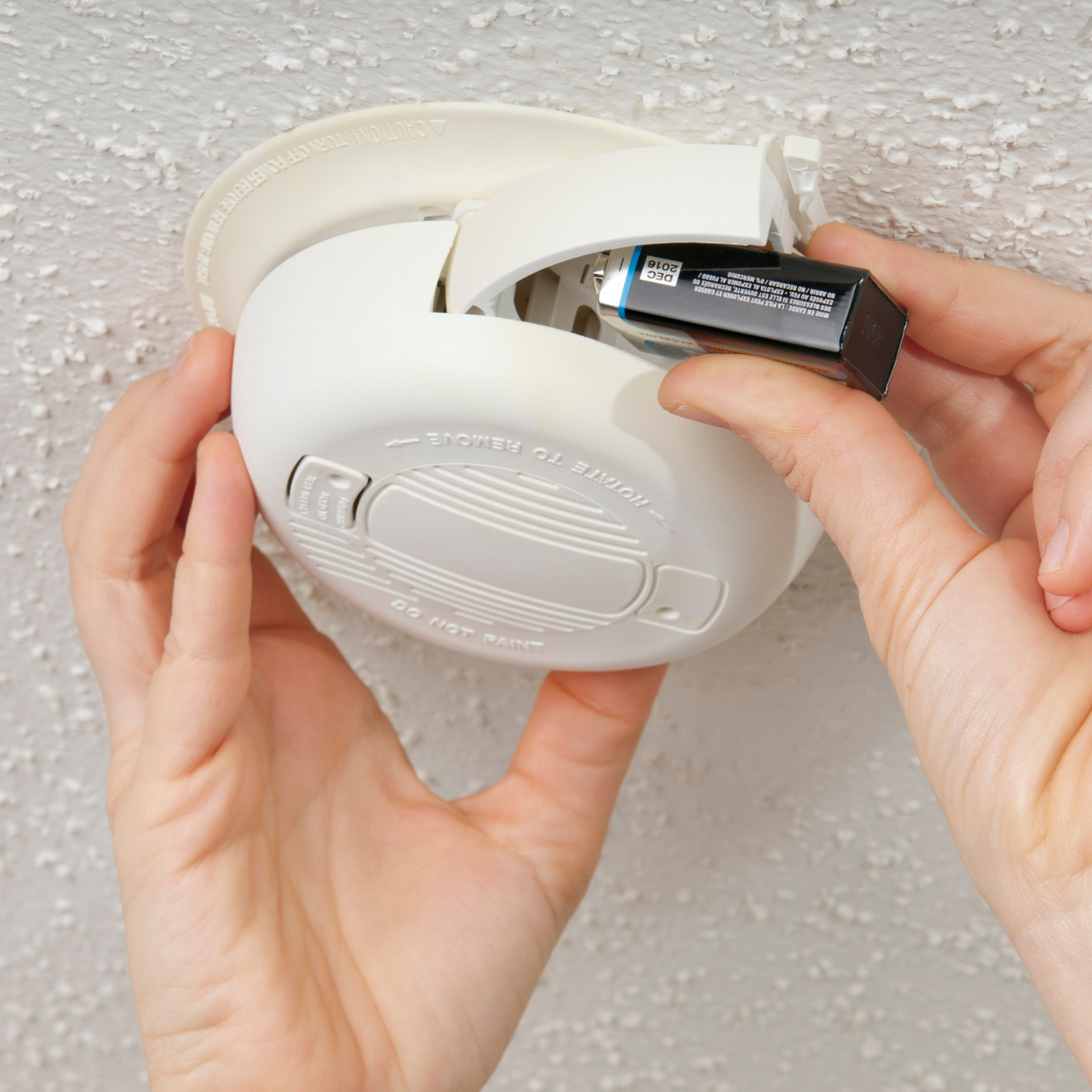Why is my hardwired smoke detector chirping?
Hardwired smoke detectors still have batteries and will chirp for several reasons.
Smoke detectors are essential safety devices that every home should have. They detect the presence of smoke and notify occupants of a potential fire. As technology advances, most residents have hardwired smoke detectors rather than battery-operated ones. The difference between the two systems isn’t whether they have batteries, as the names might imply, but rather if the sensors throughout your home are interconnected through hard wiring or not. Hardwired smoke detectors also have batteries and can experience issues, such as chirping sounds, which can be annoying and confusing. In this article, we'll explore the reasons why your smoke detector may chirp even though it's hardwired into your house, what it might mean, and what steps you can take to fix the issue.
Understanding hardwired smoke detectors
Hardwired smoke detectors are connected to the electrical wiring of your house. They are typically installed by electricians and are designed to be more reliable than battery-operated ones. Hardwired smoke detectors have a backup battery that serves as a power source in case of a power outage, which can be frequent in our area. This battery also serves as a backup in case there is an issue with the electrical wiring.
Hardwired smoke detectors are designed to be interconnected, which means that if one detector detects smoke, all the detectors in the house will sound an alarm. This feature is important as it ensures that people in different parts of the house can hear the alarm and evacuate quickly.
Reasons for chirping
Chirping sounds from your hardwired smoke detector are more than just annoying, they can be a sign that there’s a problem. There are several reasons why your smoke detector may chirp, including:
Low battery warning - Even though hardwired smoke detectors are connected to the electrical wiring of your house, they still have backup batteries that need to be replaced periodically. When the battery is low, the smoke detector will chirp to alert you to replace the battery. This chirping sound is different from the one that is produced when the smoke detector detects smoke.
Malfunctioning smoke detector - Sometimes, smoke detectors can malfunction, and this can cause them to chirp. Malfunctioning smoke detectors can be caused by several factors, such as dust accumulation, insects, or mechanical failure. If your smoke detector is chirping, it's important to check if there is any dust or debris on the detector. You can also try resetting the detector by turning off the power and then turning it back on.
Power surges and electrical issues - Power surges and electrical issues can also cause your hardwired smoke detector to chirp. When there is a power surge, the smoke detector can experience a power interruption, which can cause it to chirp. Electrical issues, such as loose connections or faulty wiring, can also cause your smoke detector to chirp. It's important to contact a licensed electrician to check the wiring and ensure that there are no issues.
Interconnected smoke detectors - If your hardwired smoke detectors are interconnected, a chirping sound from one detector can cause all the detectors in the house to chirp. This feature is designed to ensure that people in different parts of the house can hear the alarm and evacuate quickly. However, if one detector is malfunctioning, it can cause all the detectors to chirp, which can be particularly perplexing in the middle of the night. It's important to check each detector to determine which one is causing the issue.
Troubleshooting tips
If your hardwired smoke detector is chirping, there are several troubleshooting tips that you can try before contacting a licensed electrician. These tips include:
Check the battery: If your smoke detector is chirping, the first thing you should do is check the battery. If the battery is low, replace it with a new one.
Clean the detector: If there is dust or debris on the detector, it can cause it to malfunction. Use a vacuum cleaner or a soft brush to clean the detector.
Reset the detector: If your smoke detector is chirping, try resetting it by turning off the power and then turning it back on.
Check the wiring: If there are any loose connections or faulty wiring, it can cause your smoke detector to chirp. Check the wiring to ensure that there are no issues.
When to replace smoke detectors
Smoke detectors have a lifespan of about ten years. After this time, they should be replaced, even if they are still functioning properly. If your smoke detector is chirping and it's more than ten years old, it's time to replace it. Additionally, if you have tried all the troubleshooting tips and your smoke detector is still chirping, it's time to replace it.
Conclusion
Smoke detectors are essential safety devices that every home should have. If you have a hardwired smoke detector and it's chirping, it can be frustrating and confusing. However, chirping sounds can be a sign of a problem, such as a low battery or a malfunctioning detector. It's important to troubleshoot the issue and replace the detector if necessary. By following the tips in this article, you can ensure that your smoke detector is working properly and keep your home safe. If you need assistance please feel free to give us a call.
